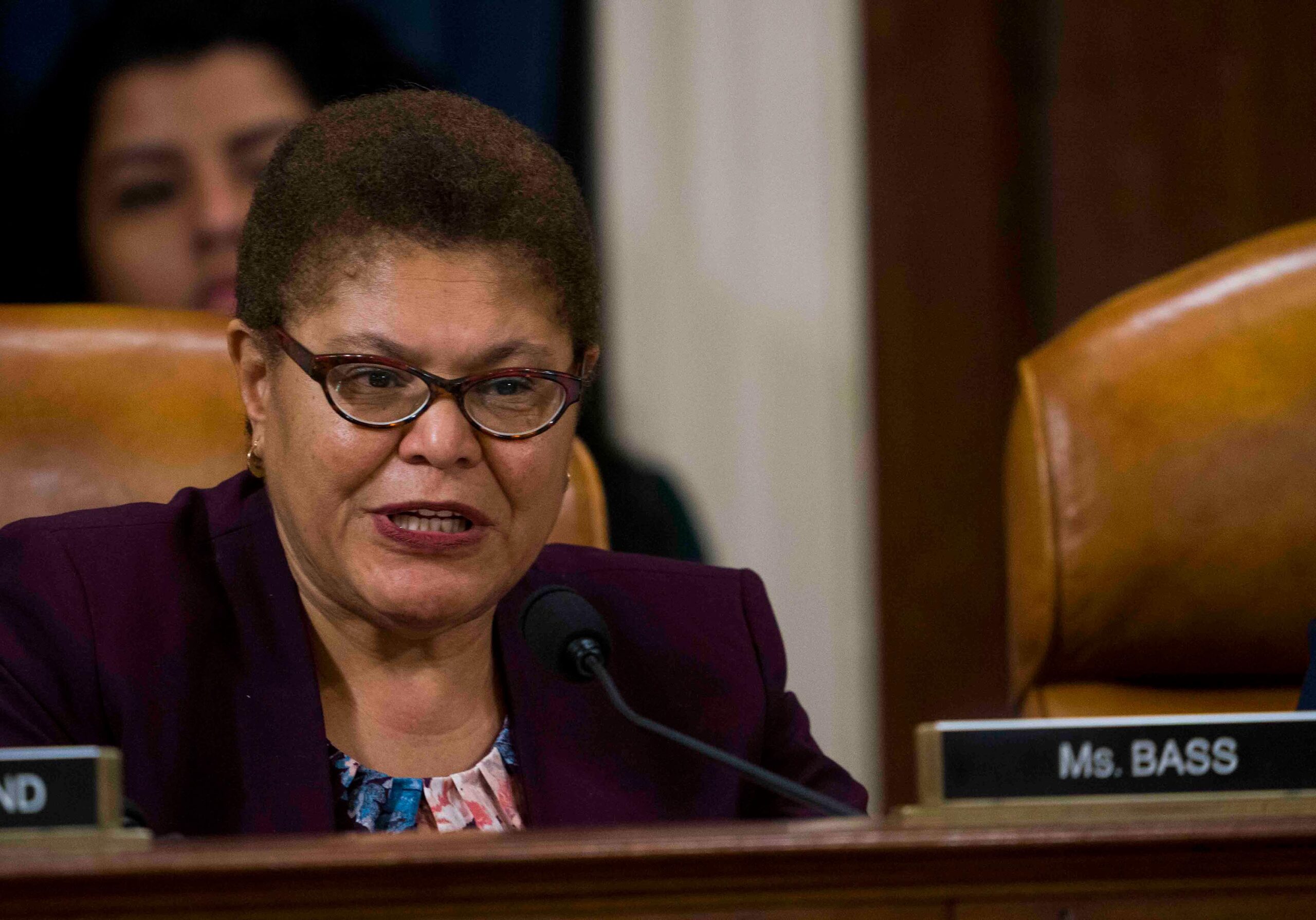Bipartisan talks on overhauling America’s policing practices are hung up on a key issue: Whether Congress should include new standards for when officers can be charged with crimes.
The issue has dogged the two sides for weeks — and it’s far from clear how the matter will get resolved or if it could doom the effort entirely.
But Republicans say the topic should be off the table completely, with the GOP suggesting that Democrats have reinserted the issue back into the talks when they had thought there was an understanding it be set aside.
“That is definitely a point of contention,” Rep. Karen Bass of California, the lead negotiator for House Democrats, told CNN, with her side arguing such changes are essential to ensure that victims of excessive police force can see individual officers held accountable in the courts.
Senate Judiciary Chairman Dick Durbin, an Illinois Democrat, said the issue remains unresolved.
The lead Senate GOP negotiator, Sen. Tim Scott of South Carolina, has called any changes to the standard for criminally prosecuting police officers, known as Section 242, a red line.
“We’re just moving on, honestly,” Scott said on Tuesday.
The issue is separate from another sticking point: Whether to change the so-called qualified immunity standard to make it easier to sue officers in civil court. The two sides have generally agreed to include language ensuring there is “liability by the employer” to allow departments and cities to be sued in civil court. It’s a compromise Scott initially suggested since Democrats wanted to do away with the standard altogether.
In the meantime, Democrats have proposed adding additional crimes “of a very serious nature” for which an individual officer can be criminally charged, Durbin said, with their side arguing the current standard makes it too difficult to prosecute officers when they’ve acted recklessly.
But lowering the bar for criminal prosecution has been met with complete resistance from Scott and other Republicans, who refuse to consider any changes and say such proposals will only make it harder for police officers to do their jobs in already trying circumstances.
“We’re not going to federalize new crimes,” Republican Sen. Lindsey Graham, also from South Carolina and who has been involved with the discussions, said when asked about the Democratic proposal.
On Tuesday, Bass fired back.
“If Sen. Lindsey (Graham) has other ways to hold police accountable so that we can stop seeing excessive force on cellphone videos, I’d love to hear them. And I’d be open to them,” Bass said.
“There has to be a way to hold the individual officer accountable and the department,” Bass continued. “Qualified immunity is one. Another way to hold the individual officer accountable is [Section] 242. So, let me just say this. In Senator Booker’s proposal, it says that if an officer steals, the officer should be prosecuted. If an officer commits a crime with an underaged girl or boy, the officer should be prosecuted. If the officer sexually assaults or harasses somebody under the color of law, he should be prosecuted. Now, do you have a problem with that? Does anybody have a problem with that? As far as I understand, those are crimes anyway.”
Despite the issues the key negotiators still must resolve, the lawmakers remain optimistic they will get a deal done sometime this month.
“I’m still optimistic this is the month that it has to happen,” Scott said.
“I do still think we can wrap things up this month,” Bass told reporters. “And if we have to go into July a little bit, we go into July, but there’s no reason for this to last until the August recess. There really isn’t. What we have to do is, we have to make a commitment to put in the time that is needed.”

